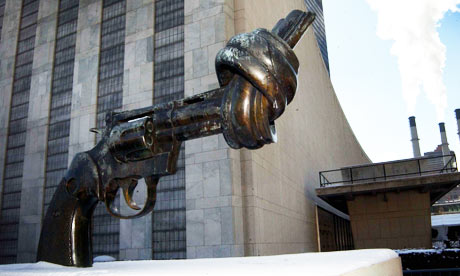
Tony Parsons' tales of male angst, career success and relationship dysfunction are stories I can relate to. The fictional lives of his of "lad lit" characters, who navigate the complex maze of work, women and divided responsibilities, mirror my own as a professional and one-time Londoner. But unless Parsons is keeping a bizarre secret, he doesn't know what it's like to be a black man, so there's a certain point where my spiritual connection with his characters evaporates.
This is why I noted with great interest the recent release of Black Shoes, the debut novel by Hotel Babylon actor Michael Obiora, which more accurately reflects my story and that of my close friends. The book's protagonist, Daniel Martins, is young, accomplished and enjoys the luxurious trappings afforded by the success of his own property development firm. Despite this, Daniel battles against myriad negative stereotypes he is expected to live up to because of the colour of his skin.
Black Shoes offers a welcome relief from much of the "ghetto lit" being rung through cash registers across the UK and occupying increasing shelf space to the detriment of more serious works. With their lurid depictions of gangsters, criminals, thugs, pimps and all-round ghetto-fabulousness, these books certainly don't represent my reality and I'm willing to wager, don't do much justice to many other black folks either.
Victor Headley's Yardie trilogy found popular appeal among young black British males in the 90s, paving the way for a spate of similar books glamorising criminal lifestyles, much to the chagrin of many literary critics.
The ghetto/street lit versus quality fiction debate has also been raging across the pond over the past few years, with serious US writers lamenting the increasing preponderance of trashy books aimed at black readers. With dubious titles such as Hustlin' Backwards and Crack Head, these books boast characters who are "out to get rich by any means necessary", while in the process sampling "all the women [their] libidos can handle".
The argument posited by advocates of ghetto lit is that it democratises literature, encouraging those who wouldn't otherwise pick up a book to get into the habit of reading, and it's a powerful line. However, if care is not taken, these books are likely to do more harm than good, allowing readers to become complacent with lazy, destructive stereotypes and offering an altogether bleak outlook for black literature.
Black readers must realise that there's much more to be had from the books that bear their faces than the unimaginative prose, violent stock characters and trite plotlines offered by ghetto lit.
Which makes one wonder why, despite the Diran Adebayos and Ekow Eshuns, there are so few positive and multidimensional black male voices in commercial fiction?
As well as some black writers and readers not challenging themselves enough, it may be that publishers simply aren't willing to view characters of colour outside of the narrow prism to which they have become accustomed. When Obiora pitched his novel to a television executive, the producer liked the story but told him bluntly that mainstream audiences would be unwilling to see a black character without a gun in his pocket.
The market for books geared towards males is notoriously slim, but this may be down to the fact that many men simply don't see their nuanced stories being told in print – least of all black men who happen to be educated/middle class/upwardly mobile.
Lad lit books may be easy to read and might not win admission to the pantheon of timeless literary masterpieces, but they do deal with serious issues such as familial breakdowns, single parenthood, infidelity and death thoughtfully and intelligently. Ghetto lit would do well to take a leaf out of that book and walk a step or two in Obiora's Black Shoes.

